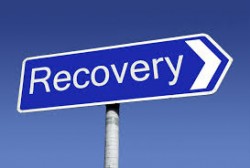Opiate Addiction Recovery Options
Opium poppy plants have given rise to a wide variety of opiate drugs, both legal and illegal. Heroin, opium and prescription pain medications are all opiate-based drugs. When it comes to pain-related conditions, opiate prescription drugs offer the most effective treatment over all other medications. Unfortunately, these drugs carry a high potential for addiction that can sneak up on casual users without their even knowing it.
Opiate addiction recovery options are available for most every level of addiction. Inpatient, outpatient and medication-assisted recovery options offer the most commonly used treatments for breaking opiate addictions.
Medication-Assisted Recovery

Treatment in the form of psychotherapy alone or combined with pharmacotherapy can help you get on the road to recovery!
Whether a person’s been addicted to opiates for months or years at a time, once addiction sets in the body cannot function on its own without the effects of the drugs. Opiate addiction recovery options offer medication-assisted treatments to help addicts make it through the first step of recovery: detoxification. Medication-assisted opiate addiction recovery uses specialized medications designed to counteract the withdrawal effects that result when a person stops using.
Medication therapies may use standard treatment drugs, such as methadone and buprenorphine. According to Harvard Health Publications, methadone and buprenorphine help to reduce drug cravings and eliminate withdrawal effects during the detoxification stage. For people with long-term addictions, these medication therapies can provide both short- and long-term relief from withdrawal effects and cravings. As opiates can cause considerable damage to the body’s chemical processes, some people may require medication therapy on a long-term basis in order to remain drug-free.
Opiate addiction recovery options also include alternative medication therapies, which administer different types of medications on a case-by-case basis depending on the types of symptoms a person experiences. Alternative treatment approaches may also incorporate other methods, such as massage, yoga, nutrition regimens and exercise to help alleviate withdrawal effects during detoxification.
Inpatient Recovery
Opiate withdrawal effects and cravings can last for months and even years after a person stops using. The duration of these effects usually depends on the severity of the addiction. For many people, the highly structured treatment environment provided by inpatient programs is the only way they’ll be able to maintain sobriety after detoxing. Opiate addiction recovery inpatient care offers 24-hour monitoring to help recovering addicts make it through times when cravings are at their worse.
Opiate addictions also impair a person’s psychological and emotional states to the point where everyday interactions with people are hard to handle. Opiate addiction recovery inpatient care provides psychotherapy treatment to help recovering addicts learn to better manage their emotions while addressing any psychological issues or conditions that drive addictive behaviors.
Outpatient Recovery
For people who’ve managed to stay employed and/or maintain personal relationships through their addiction, outpatient opiate addiction recovery may offer the leeway they need to fulfill ongoing work and family obligations. Outpatient opiate addiction recovery offers psychotherapy, medication-assisted treatment and group supports much like inpatient recovery does. The only difference is participants live at home rather than at the facility. In this way, a person can schedule treatment times around his or her daily work and family obligations. This opiate addiction recovery option works particularly well for people who are highly motivated to get better.
 Treatment for Prescription Drug Abuse -
While there are a range of different prescription drugs, the treatment for prescription drug abuse is typically counseling and behavioral therapy. With certain drugs medication is also used.
Treatment for Prescription Drug Abuse -
While there are a range of different prescription drugs, the treatment for prescription drug abuse is typically counseling and behavioral therapy. With certain drugs medication is also used.  What Happens in Opium Treatment? -
Choosing a facility for opium addiction treatment can be challenging, but generally, most include a mixture of medical and behavioral therapy.
What Happens in Opium Treatment? -
Choosing a facility for opium addiction treatment can be challenging, but generally, most include a mixture of medical and behavioral therapy.  How to Find the Best Opiate Addiction Treatment -
Opiate rehab can help you overcome an addiction to opiates, but it's important to choose a good program. Evidence-based methods and an individual approach are essential.
How to Find the Best Opiate Addiction Treatment -
Opiate rehab can help you overcome an addiction to opiates, but it's important to choose a good program. Evidence-based methods and an individual approach are essential.  Knowing It’s Time to Seek Prescription Opioid Addiction Treatment -
Learn the signs of prescription opioid abuse and addiction so you can seek the treatment you need.
Knowing It’s Time to Seek Prescription Opioid Addiction Treatment -
Learn the signs of prescription opioid abuse and addiction so you can seek the treatment you need.  When Going Away for Opium Rehab is the Best Choice -
Opium rehab may be necessary if your loved one presents signs of psychiatric severity, does not have a strong support system, or needs to get away from their current surroundings.
When Going Away for Opium Rehab is the Best Choice -
Opium rehab may be necessary if your loved one presents signs of psychiatric severity, does not have a strong support system, or needs to get away from their current surroundings.